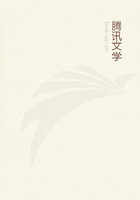The alienation of self-consciousness establishes thingness. Because man is equivalent to self-consciousness, his alienated objective being or thingness (that which is an object for him, and the only true object for him is that which is an essential object -- i.e., his objective essence; since it is not real man, and therefore not nature, for man is human nature, who becomes as such the subject, but only the abstraction of man, self-consciousness, thingness can only be alienated self-consciousness) is the equivalent of alienated self-consciousness, and thingness is established by this alienation. It is entirely to be expected that a living, natural being equipped and endowed with objective -- i.e., material -- essential powers should have real natural objects for the objects of its being, and that its self-alienation should take the form of the establishment of a real, objective world, but as something external to it, a world which does not belong to its being and which overpowers it. There is nothing incomprehensible or mysterious about that. It would only be mysterious if the contrary were true. But it is equally clear that a self-consciousness, through its alienation, can only establish thingness -- i.e., and abstract thing, a thing of abstraction and not a real thing. It is also clear that thingness is therefore in no way something independent or substantial vis-a-vis self-consciousness; it is a mere creature, a postulate of self-consciousness. And what is postulated, instead of confirming itself, is only a confirmation of the act of postulating; an act which, for a single moment, concentrates its energy as product and apparently confers upon that product -- but only for a moment -- the role of an independent, real being.
When real, corporeal man, his feet firmly planted on the solid earth and breathing all the powers of nature, establishes his real, objective essential powers as alien objects by externalization [Entausserung], it is not the establishing [Setzen] which is subject; it is the subjectivity of objective essential powers whose action must therefore be an objective one. An objective being acts objectively, and it would not act objectively is objectivity were not an inherent part of its essential nature. It creates and establishes only objects because it is established by objects, because it is fundamentally nature. In the act of establishing, it, therefore, does not descend from its "pure activity" to the creation of objects; on the contrary, its objective product simply confirms its objective activity, its activity as the activity of an objective, natural being.
Here we see how the constant naturalism or humanism differs both from idealism and materialism and is at the same time their unifying truth.
We also see that only naturalism is capable of comprehending the process of world history.
Man is directly a natural being. As a natural being, and as a living natural being, he is on the one hand equipped with natural powers, with vital powers, he is an active natural being; these powers exist in him as dispositions and capacities, as drives. On the other hand, as a natural, corporeal, sensuous, objective being, he is a suffering, conditioned, and limited being, like animals and plants. that is to say, the objects of his drives exist outside him as objects independent of him; but these objects are objects of his need, essential objects, indispensable to the exercise and confirmation of his essential powers. To say that man is a corporeal, living, real, sensuous, objective being with natural powers means that he has real, sensuous objects as the object of his being and of his vital expression, or that he can only express his life in real, sensuous objects. To be objective, natural, and sensuous, and to have object, nature, and sense outside oneself, or to be oneself object, nature, and sense for a third person is one and the same thing. Hunger is a natural need; it therefore requires a nature and an object outside itself in order to satisfy and still itself. Hunger is the acknowledged need of my body for an object which exists outside itself and which is indispensable to its integration and to the expression of its essential nature. The Sun is an object for the plant, an indispensable object with confirms its life, just as the plant is an object for the Sun, as expression of its life-awakening power and its objective essential power.
A being which does not have its nature outside itself is not a natural being and plays no part in the system of nature. A being which has no object outside it, it would exist in a condition of solitude. For as soon as there are objects outside me, as soon as I am not alone, I am another, a reality other than the object outside me. For this third object I am therefore a reality other than it -- i.e., its object. A being which is not the object of another being therefore presupposes that no objective being exists. As soon as I have an object, this object has me for its object. But a non-objective being is an unreal, non-sensuous, merely thought -- i.e., merely conceived -- being, a being of abstraction.
To be sensuous -- i.e., to be real -- is to be an object of sense, a sensuous object, and thus to have sensuous objects outside oneself, objects of one's sense perception. To be sensuous is to suffer (to be subjected to the actions of another).
Man as an objective sensuous being is therefore a suffering being, and because he feels his suffering [Leiden], he is a passionate [leidenschaftliches] being. Passion is man's essential power vigorously striving to attain its object.
But man is not only a natural being; he is a human natural being; i.e., he is a being for himself and hence a species-being, as which he must confirm and realize himself both in his being and in his knowning.















